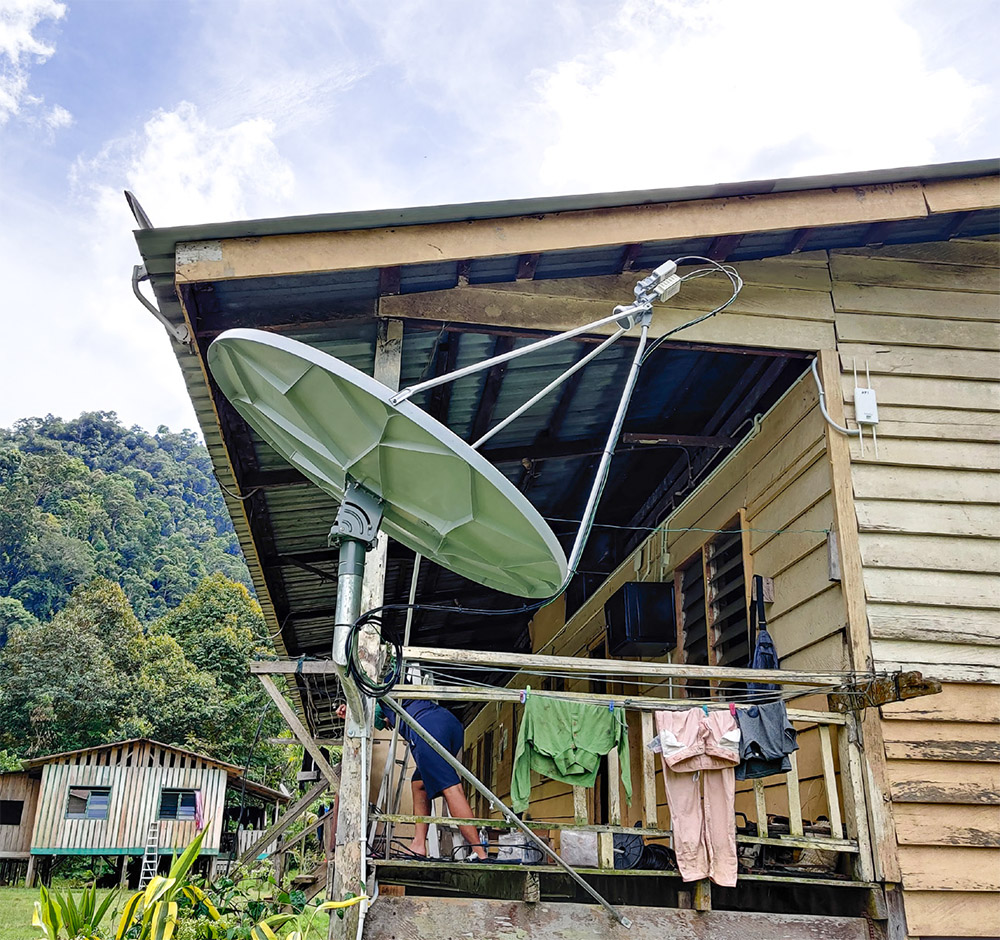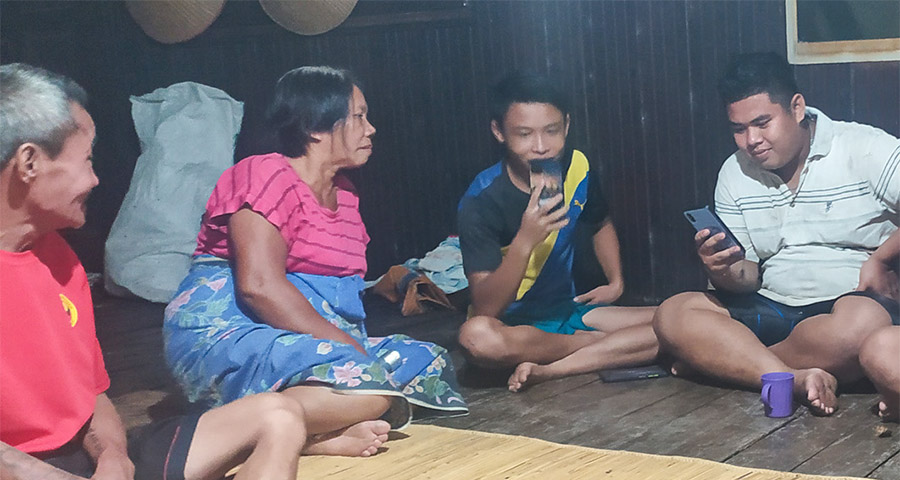In an effort to provide broadband access to the underserved areas especially in rural and remote areas, the Commission has implemented the Broadband Wireless Access (BWA) via Satellite Connectivity initiative. This is an interim measure and serves as an expedient solution for connectivity issues in the remote areas with challenging geographical terrain. The completion of permanent solutions for the provisioning of public cellular services and mobile broadband in such areas will take a considerable time given the consideration of population density and geographical terrain.
Under this project, a total of 839 locations have been identified nationwide covering Johor, Kelantan, Negeri Sembilan, Pahang, Perak, Selangor, Sabah and Sarawak. The locations comprise Orang Asli settlements in the Peninsular, and remote areas in Sabah and Sarawak. The provisioning of broadband access service will be based on collective access by setting up public WiFi hotspots, proportionate to the number of population and distribution at each location. End users in each location will enjoy free WiFi at an average speed of 35 Mbps, which will highly benefit the community. This supports the national agenda of closing the digital divide.
The use of internet for home-based teaching and learning (PdPR) programme, work from home and socio-economic activities is crucial during the Movement Control Order (MCO) begining March 2020. In this unprecedented situation, internet availability in rural and remote areas has become even more critical and crucial. The outcome of this project is to prioritise the WiFi usage for PdPR and provide equal opportunities and support for socioeconomic activities via digital platforms.
The project is part of the JENDELA plan and has been implemented by the designated universal service providers (DUSPs) since September 2021 pursuant to Regulation 5 of the USP Regulations 2002.
The implementation of this project has been delayed by flood, Orang Asli movement, location accessibility, challenging geographical terrain and lack of stable power supply sources. Nevertheless, the Commission, through collaboration with DUSPs, stays committed to overcome all these challenges to ensure that no one is left out from enjoying communications and broadband services.
As of 31 December 2021, the installation of network facilities at 437 locations has been completed, and the broadband services are now available for end-users.

Figure 3: The Milestones of BWA Project
| State | Total Numbers of Locations | Total Completed | |
|---|---|---|---|
| Johor | 11 | 8 | |
| Kelantan | 18 | – | |
| Negeri Sembilan | 2 | 2 | |
| Pahang | 69 | 8 | |
| Perak | 73 | 47 | |
| Selangor | 5 | 5 | |
| Sabah | 138 | 44 | |
| Sarawak | 523 | 323 | |
| TOTAL | 839 | 437 |
Note: * remaining 402 locations will be completed in 2022.
Table 2: Number of Locations by State
BROADBAND WIRELESS ACCESS (BWA) VIA SATELLITE CONNECTIVITY IN KAMPUNG ORANG ASLI SUNGAI JUDAH, PULAU CAREY


Now I can use the WiFi services provided under the BWA project for online classes and completing my assignments smoothly from home without having to go to town to get the internet services. Thanks to MCMC for implementing this project. It helps to ease the people’s burden here especially
students like me.
Rokna Zaidi, 23,
Universiti Malaysia Kelantan student


BWA project site in remote areas in Sarawak
– MCMC pictures
This project is part of the Commission’s efforts to expand broadband coverage and to address service provisioning requirements in areas which are very remote, have a very low population density. As such, the fibre and terrestrial connectivity is not available and is challenging to deploy and sustain in Malaysia, in accordance with the objectives as specified in sub regulation 3(1) of the USP Regulations.
The provisioning of services here serves as an interim solution (for a period of two years) for people in the underserved areas to have an expedient means of access to connectivity, given the impact of COVID-19 pandemic and associated challenges in carrying out socio-economic activities.
This project, therefore, provides WiFi services to end-users as an interim measure, while the Commission plans for sustainable long-term measures.


